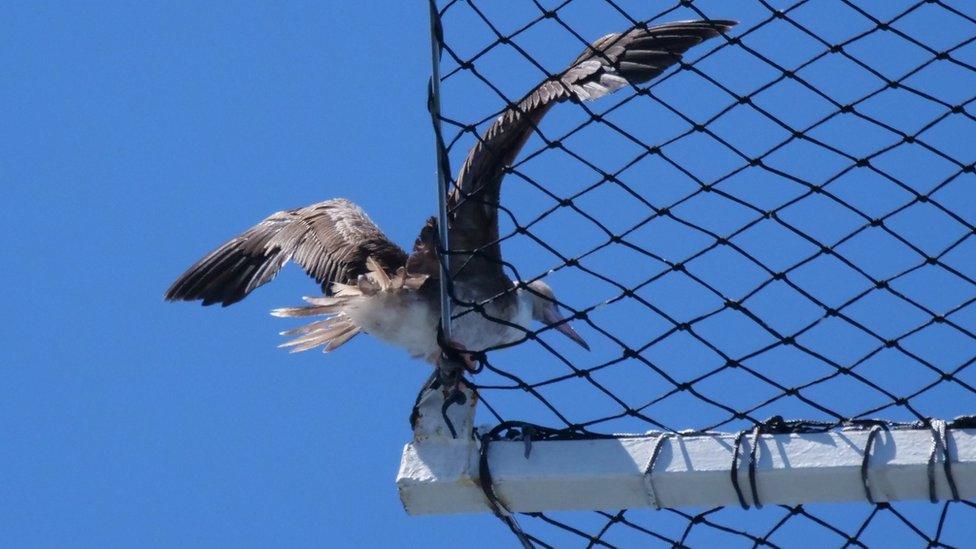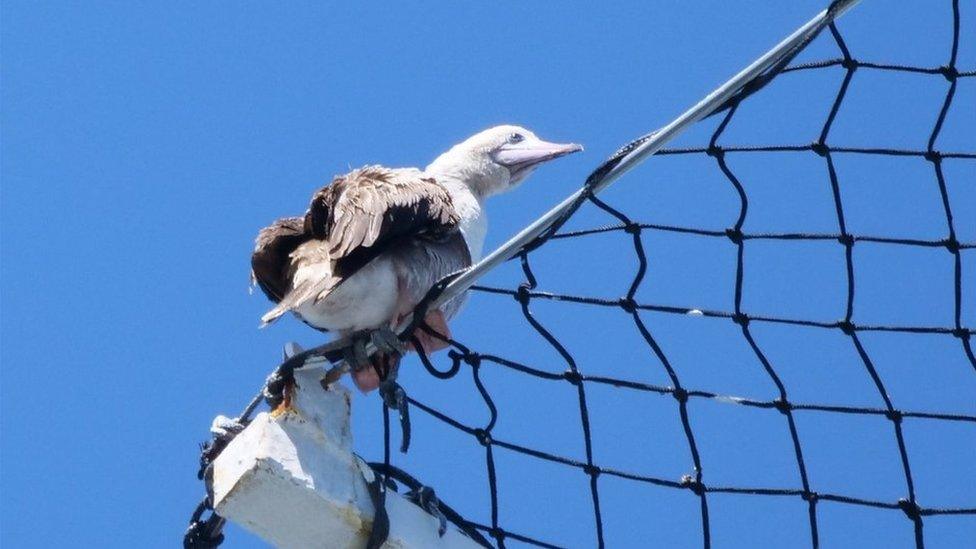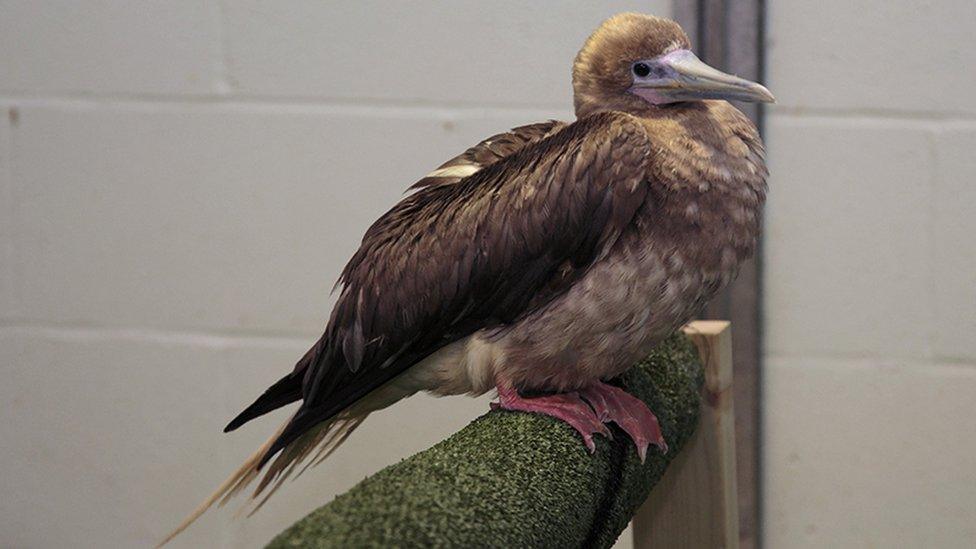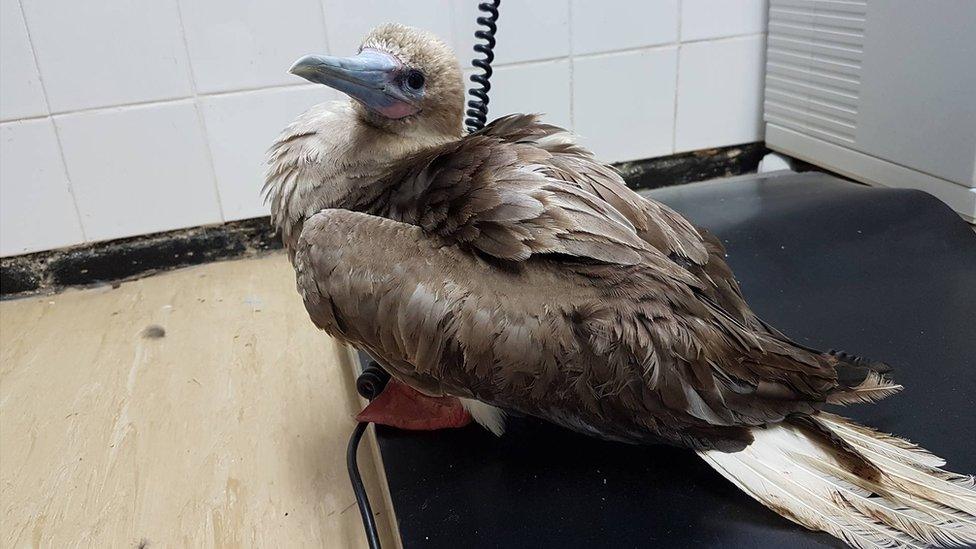Rare tropical red-footed booby spotted near Isles of Scilly
- Published

It was spotted on the lighthouse near the Isles of Scilly
A rare species of tropical bird recorded only once before in the UK has been spotted near the Isles of Scilly.
The red-footed booby is a seabird native to the Galápagos Islands, more than 6,000 miles away.
A tour boat crew saw the rare species perched on Bishop Rock Lighthouse, four miles west of Scilly.
The British Trust for Ornithology (BTO), which studies birds in the British Isles, said the warm weather might explain its presence.
The first UK sighting of booby was in 2016 when it was discovered in "an exhausted state" on the beach at St Leonards, Sussex.
Joe Pender, skipper of the tour boat Scilly Pelagics, first saw the bird on 7 August and said "to everyone's amazement, there it was".
He said he returned for more trips on Monday and the seabird, related to the Gannet species, was still there.
"I think it's a long way from home but it seems really happy up there," Mr Pender explained.
"There was obviously a lot of excitement from the people on board. There were a few rare seabirds they expected they might bump into, but this certainly wasn't one of them."

The red-footed booby

A tour boat crew spotted the seabird
The red-footed booby is a relative of the gannet, but this species breeds on tropical islands like the Galapagos, the BTO said
The National Geographic said, external red-footed boobies do not usually migrate, living year-round in tropical or sub-tropical areas
They feed at sea and nest on the ground, while also perching in coastal trees and shrubs
They are the smallest of more than six species of booby
The species appear in a variety of colour morphs but all have red feet, which gives them their name
Source: National Geographic/BTO

The BTO said the red-footed booby was "the most eye-catching example of a broader phenomenon we've been seeing this summer, with seabirds associated with hotter climates reported from south-west Britain".
A spokesperson said: "We don't know exactly why this is but we do know that the world's oceans hit the hottest temperatures ever recorded last month.
"This could be pushing birds out of their usual habitats in search for more favourable conditions."

Follow BBC News South West on Twitter, external, Facebook, external and Instagram, external. Send your story ideas to spotlight@bbc.co.uk, external
Related topics
- Published16 December 2016

- Published5 September 2016
